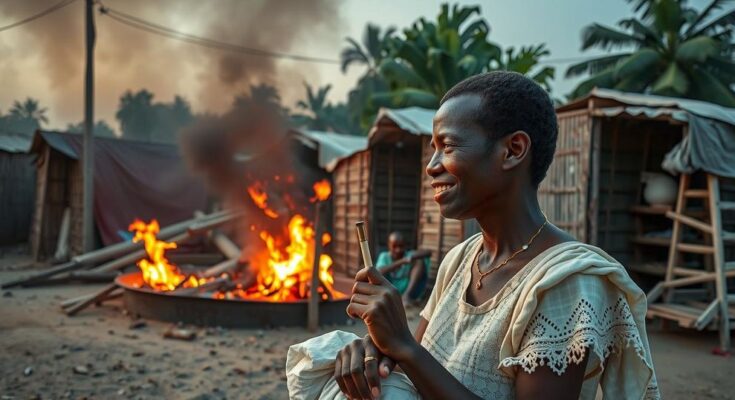Sudan continues to face a deepening humanitarian crisis due to escalated conflict between armed forces, with severe food insecurity affecting millions. Myanmar remains in turmoil post-coup with ongoing violence and neglect of ethnic minorities, particularly the Rohingya. In the DRC, renewed violence prompted the extension of UN peacekeeping efforts amid exploitation of natural resources. Immediate international action is critical to ensure protection for civilians in these regions.
The humanitarian crisis in Sudan intensifies as the war has passed its 20th month, wreaking havoc on the civilian population and generating catastrophic conditions. The Sudanese Armed Forces (SAF) escalated assaults against the Rapid Support Forces (RSF) in and around Khartoum, resulting in substantial civilian casualties. Violence continues unabated in Darfur, particularly around El Fasher, leading to countless civilian deaths and significant injuries. In response to these atrocities, the United States has identified RSF’s actions in Darfur as genocide, imposing sanctions on their leader, Mohamed Hamdan ‘Hemedti’ Dagalo.
Acute food insecurity now affects over 24.6 million individuals, contributing to the world’s largest hunger crisis. Recent reports characterize famine conditions in multiple regions, exacerbated by rising hostilities and a total disregard for international humanitarian law. Meanwhile, in Myanmar, the military regime continues to exhibit systematic violence and neglect of millions facing humanitarian crises resulting from the military coup in February 2021. Fresh census results were controversial, highlighting the junta’s refusal to recognize various ethnic groups, including the Rohingya, victims of past genocidal acts.
Conversely, conflict in the eastern Democratic Republic of the Congo (DRC) prompted an extension of the United Nations peacekeeping mission, MONUSCO, amid ongoing violence, human rights violations and exploitation of the region’s natural resources by armed groups. The DRC’s government has taken steps to address this exploitation by filing criminal complaints against corporations such as Apple, accusing them of sourcing conflict minerals. This incident reflects rising scrutiny over supply chains concerning human rights violations. Despite MONUSCO’s essential role in protecting civilians, a comprehensive solution demands collaboration from all conflict parties and improved governance to ensure sustainable resource management.
The report outlines the ongoing humanitarian crises in three distinct regions: Sudan, Myanmar, and the Democratic Republic of the Congo (DRC). In Sudan, the prolonged conflict has led to widespread civilian suffering characterized by a significant humanitarian crisis. Myanmar faces violence from military forces against civilians and ethnic organizations following a coup d’état, while the DRC grapples with exacerbated violence related to resource exploitation and armed conflicts. The document emphasizes the urgent need for international intervention and adherence to humanitarian laws in alleviating these crises.
In summary, the situations in Sudan, Myanmar, and the Democratic Republic of the Congo reflect urgent humanitarian crises exacerbated by conflict and widespread violence against civilians. As international attention grows, robust measures are imperative to ensure civilian protection and accountability for atrocities committed. Collaboration among various stakeholders, adherence to international humanitarian law, and the promotion of sustainable governance will be crucial in addressing these challenges and providing necessary humanitarian aid.
Original Source: www.globalr2p.org




